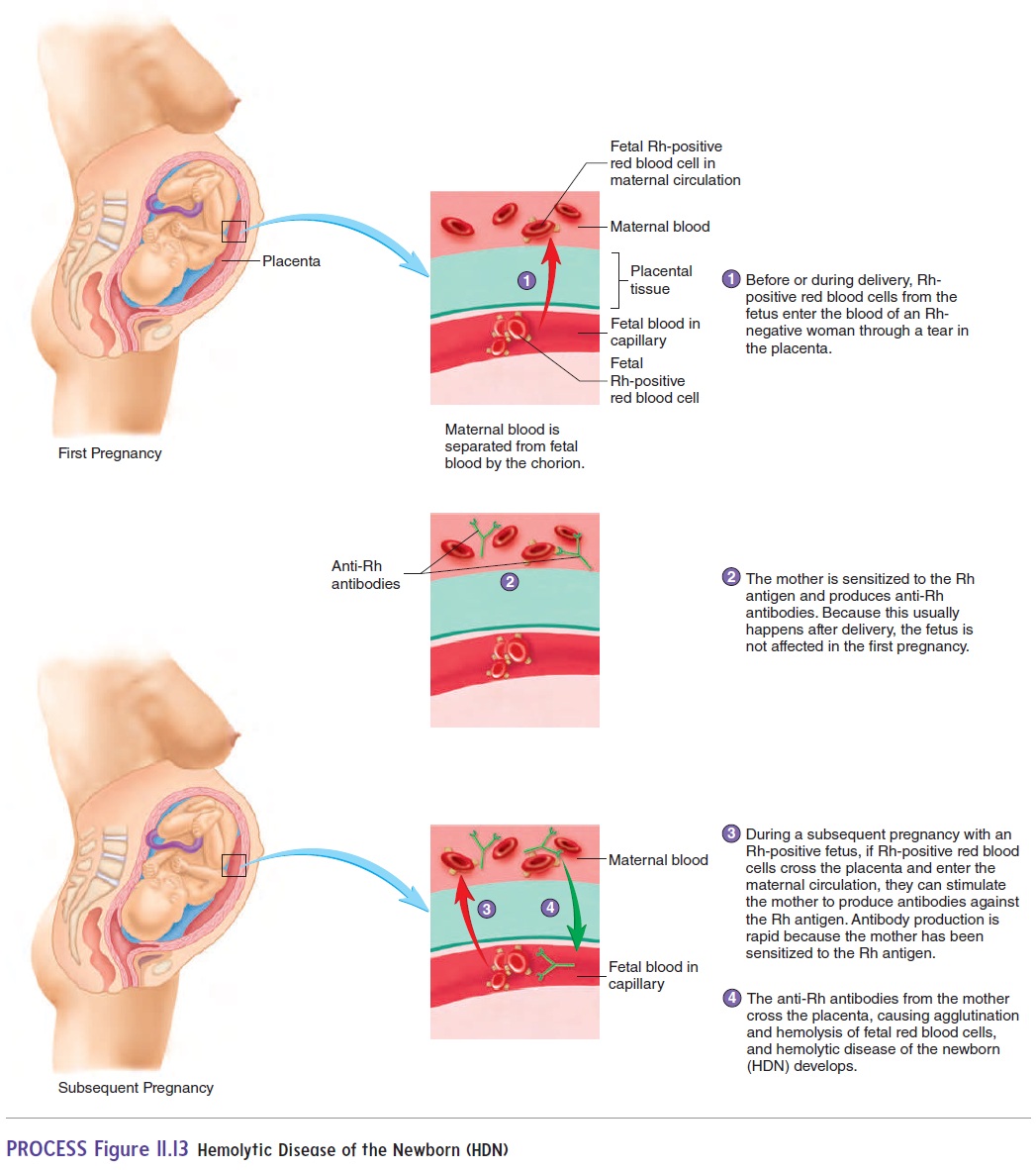Chapter: Essentials of Anatomy and Physiology: Blood
Rh Blood Group
Rh Blood Group
Another important blood group is the Rh blood group, so named because it was first studied in the rhesus monkey. People are Rh-positive if they have certain Rh antigens on the surface of their red blood cells, and they are Rh-negative if they do not have these Rh antigens. About 85% of caucasians and 95% of African-Americans are Rh-positive. The ABO blood type and the Rh blood type are usually expressed together. For example, a person designated as type A in the ABO blood group and Rh-positive is said to be A-positive. The rarest combination in the United States is AB-negative, which occurs in less than 1% of the population.
Antibodies against the Rh antigens do not develop unless an Rh-negative person is exposed to Rh-positive red blood cells. This can occur through a transfusion or by the transfer of blood across the placenta to a mother from her fetus. When an Rh-negative person receives a transfusion of Rh-positive blood, the recipi-ent becomes sensitized to the Rh antigens and produces anti-Rh antibodies. If the Rh-negative person is unfortunate enough to receive a second transfusion of Rh-positive blood after becoming sensitized, a transfusion reaction results.

Rh incompatibility can pose a major problem in a pregnancy when the mother is Rh-negative and the fetus is Rh-positive. If fetal blood leaks through the placenta and mixes with the mother’s blood, the mother becomes sensitized to the Rh antigen. The mother pro-duces anti-Rh antibodies that cross the placenta and cause aggluti-nation and hemolysis of fetal red blood cells. This disorder is called hemolytic (hē-mō-lit′ik) disease of the newborn (HDN), oreryth-roblastosis fetalis (ĕ-rith′rō-blas-tō′sis fē-ta′lis) (figure 11.13). Inthe mother’s first pregnancy, there is often no problem. The leakage of fetal blood is usually the result of a tear in the placenta that takes place either late in the pregnancy or during delivery. Thus, there is not sufficient time for the mother to produce enough anti-Rh anti-bodies to harm the fetus. In later pregnancies, however, a problem can arise because the mother has been sensitized to the Rh antigen. Consequently, if the fetus is Rh-positive and if any fetal blood leaks into the mother’s blood, she rapidly produces large amounts of anti-Rh antibodies, which can cross the placenta to the fetus, result-ing in HDN. Because HDN can be fatal to the fetus, the levels of anti-Rh antibodies in the mother’s blood should be monitored. If they increase to unacceptable levels, the fetus should be tested to determine the severity of the HDN. In severe cases, a transfusion to replace lost red blood cells can be performed through the umbilical cord, or the baby can be delivered if mature enough.
Prevention of HDN is often possible if the Rh-negative mother is injected with a specific preparation called Rho(D) immune globu-lin (RhoGAM), which contains antibodies against Rh antigens. The injection can be given during the pregnancy, before delivery, or immediately after each delivery, miscarriage, or abortion. The injected antibodies bind to the Rh antigens of any fetal red blood cells that may have entered the mother’s blood. This treatment inac-tivates the fetal Rh antigens and prevents sensitization of the mother.
Related Topics